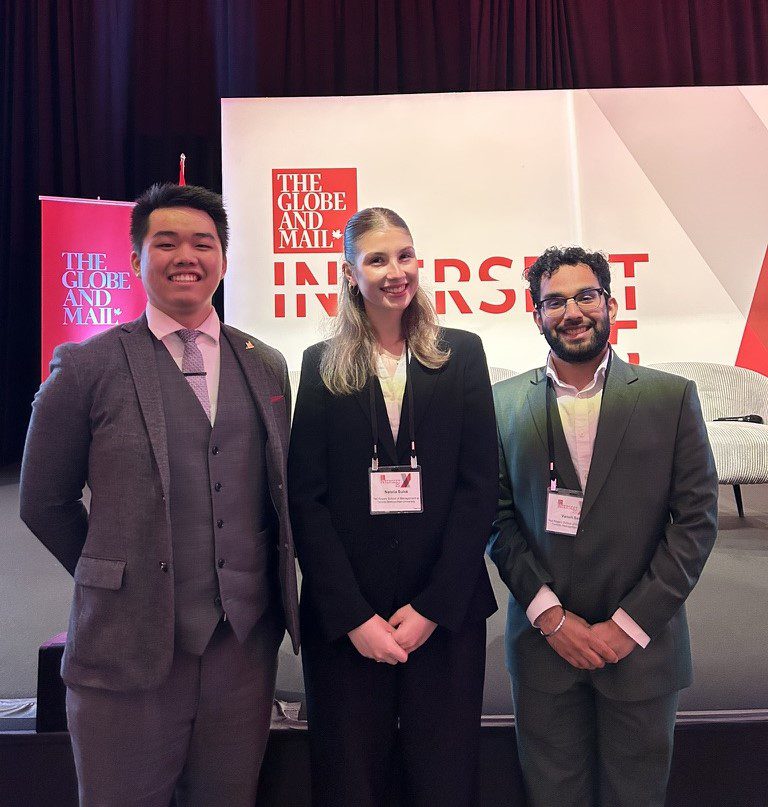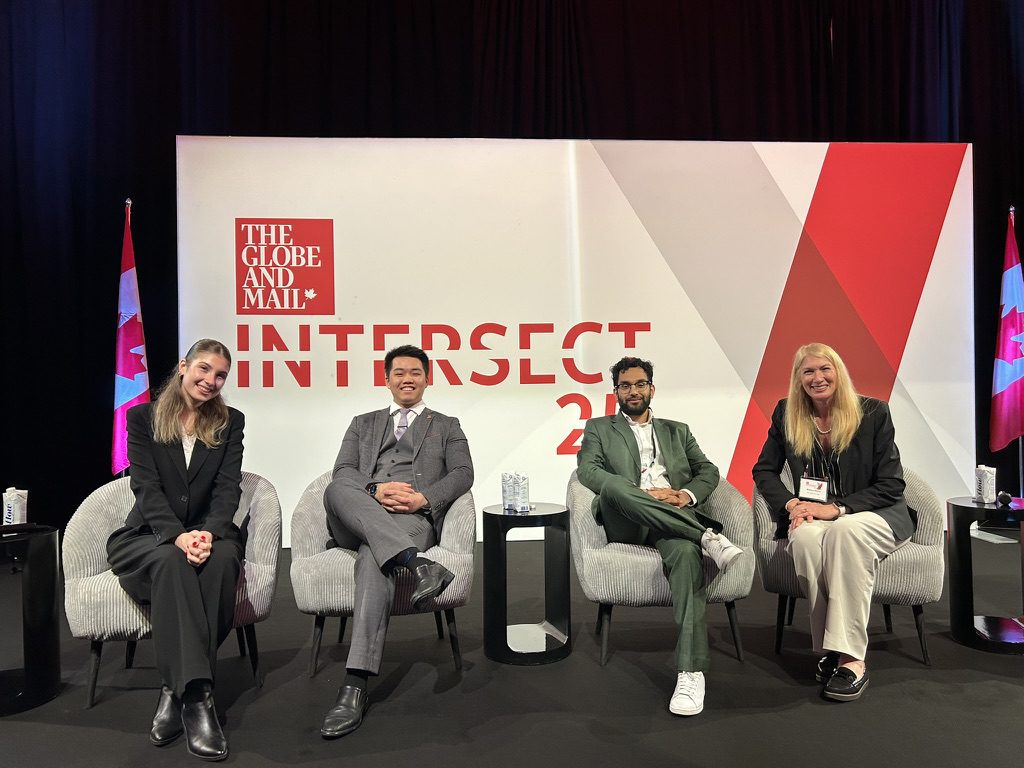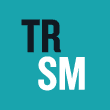Three Ted Rogers School students had the unique opportunity to attend Globe and Mail’s Intersect 2025 event as part of the Globe Campus program, the newspaper’s subscription program for leading Canadian universities and colleges.
The all-day event, held at Toronto’s Royal York Hotel on June 9, 2025, was a forum where business leaders and policy experts came together to confront the challenges Canada and businesses face, and propose paths to a more prosperous Canada.
Ted Rogers School students Willem Zhang, Vansh Saini and Natalia Sulek had a front row seat to some engaging conversations in thought leadership with speakers like Olivia Chow (Mayor, City of Toronto), Doug Ford (Premier of Ontario), Michael Sabia (CEO, Hydro-Quebec), Victor Dodig (CEO, CIBC) and Michael Katchen (CEO, Wealthsimple). They also had the opportunity to network with some of the top leaders of business in our country.
Here is what the students had to say about their experience:
Willem Zhang
Global Management Studies, 3rd year
Attending Intersect 2025 as a Ted Rogers School representative was genuinely transformative. I arrived curious—and left inspired by the collective ambition in the room. Hearing leaders like Victor Dodig (CEO, CIBC) challenge us to build solutions that endure “for ten years from now,” and Martin Basiri (Founder and CEO, Passage) remind us that “Canada just needs hope,” shifted my perspective from immediate wins to what actually matters: long-term impact.
Networking over breakfast and lunch with peers and executives reaffirmed the power of dialogue: every conversation felt like “planting a seed” for future collaboration. I’m especially grateful to the Ted Rogers School and The Globe and Mail for opening this door—this kind of real-world exposure is rare for students.
Back in my notes now, I’m already sketching ways to apply these insights to our Ted Rogers Case Team projects—streamlining decision frameworks, embracing risk-sharing and celebrating small wins. Intersect 2025 didn’t just deepen my understanding of Canada’s challenges, but rather it gave me a roadmap and a community committed to making our country stronger.

Natalia Sulek
Retail Management, 3rd year
Intersect 2025 was a thought-provoking and energizing experience that challenged how I think about Canada’s future – from economic growth to innovation and national identity. What stood out to me most was not just the policy ideas or economic outlooks, it was the unspoken challenge: overcoming Canada’s ambition and hope deficit. There was a collective recognition that our mindset has often been reactive rather than visionary. As Victor Dodig, President and CEO at CIBC, expressed, when under pressure, we brace, we retreat and then “go back to the pub.” It struck me how frequently our national discourse defaults to short-term thinking, avoiding the discomfort that comes with long-term responsibility.
But within that realism came a powerful message: change may take decades, but it begins with action today. Joyce Carter, President and CEO at Halifax International Airport Authority, brought this full circle with her reminder to “celebrate the small wins – big ones will follow.” That message stayed with me because, as a young person, it does not always feel like the momentum is there. Yet here were Canada’s most influential leaders recognizing their responsibility to equip the next generation with the tools, systems and vision needed to build a stronger Canada.
Leaving Intersect 2025, I felt both informed and hopeful. Because ambition, once named, becomes something we can work toward. And hope, when shared, becomes something we can build on.
Vansh Saini
Finance, 5th year
At Intersect 2025, I came face-to-face with a truth I hadn’t fully appreciated before: Canada plays it safe—sometimes to its own detriment. There’s a quiet hesitancy woven into our national identity, a deep-rooted discomfort with risk. We admire innovation, but we often wait for someone else to try first. We talk about global leadership, but rarely take the bold leaps needed to get there.
This mindset doesn’t just affect how we think as individuals—it shapes our economy, our policies and our potential. What really opened my eyes at the conference was how significantly public policy either accelerates or hinders business growth. It’s easy to forget that behind every startup that scales and every new industry that emerges, there’s a web of policy decisions either clearing the runway or building more obstacles.
Hearing from leaders who’ve worked within and against that system made it clear: Canada isn’t lacking in talent or ideas. We’re lacking in the structures and courage to let them thrive. Public policy isn’t some background force—it’s the soil we plant our ambitions in. And if the soil isn’t fertile, nothing grows.
Intersect 2025 didn’t just challenge me to think differently—it challenged me to act. If we want Canada to lead, we need to rethink how we value risk, how we build support systems and how we reward ambition. Playing it safe won’t get us where we need to go.


